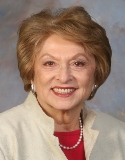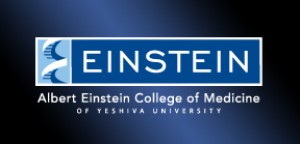High triglyceride levels found to independently predict stroke risk in older women.
High triglyceride levels found to independently predict stroke risk in older women.
A Stronger Link than Cholesterol Levels to Ischemic Stroke.
February 2, 2012— (BRONX, NY) — In a surprising finding with significant implications for older women, researchers at Albert Einstein College of Medicine of Yeshiva University and NYU School of Medicine have found that high levels of triglycerides (blood fats) are the strongest risk factor for the most common type of stroke in older women – more of a risk factor than elevated levels of total cholesterol or of low-density lipoprotein (LDL) cholesterol (known as “bad” cholesterol). The study appears online today in Stroke.
…
…
Strokes involve the sudden loss of blood flow to an area of the brain. According to the U.S. Centers for Disease Control and Prevention, nearly 800,000 Americans suffer a stroke each year. Stroke is the third leading cause of death for both men and women in the United States, accounting for more than 140,000 deaths per year. Ischemic strokes, the type assessed in this study, account for more than eight in ten strokes over all and occur when blood clots obstruct blood vessels to the brain. Nearly three-quarters of all strokes occur in those over 65.
Abnormal levels of triglycerides and other so-called lipid biomarkers have long been associated with increased risk for heart disease and atherosclerosis (plaque buildup inside arteries). The study’s senior author, Sylvia Wassertheil-Smoller, Ph.D., said that “until this study, researchers had not examined how these lipid biomarkers are independently related to stroke risk in a single group of people.” Dr. Smoller is head of the division of epidemiology, professor of epidemiology & population health, and the Dorothy and William Manealoff Foundation and Molly Rosen Chair in Social Medicine at Einstein.
The Einstein researchers analyzed data from the Hormones and Biomarkers Predicting Stroke (HaBPS) study, which consists of women enrolled in the Women’s Health Initiative (WHI), the landmark National Institutes of Health study that has monitored the health of more than 90,000 postmenopausal women nationwide over a period of 15 years. HaBPS is comprised of the first 972 women who experienced an ischemic stroke while participating in the WHI. These women were matched with a control group of 972 participants who had not had strokes. All the women had donated blood samples when they first enrolled in the WHI, and these samples were analyzed for lipid biomarkers. (Dr. Wassertheil-Smoller is principal investigator of WHI and HaBPS at Einstein.)
“The bottom line is that postmenopausal women and their physicians need to pay attention to triglyceride levels.” — Sylvia Wassertheil-Smoller, Ph.D.
“It’s important to note, many of the traditional measures of cholesterol that physicians use including total cholesterol and LDL cholesterol were not associated with risk of ischemic stroke,” said lead author of the study, Jeffrey S. Berger, M.D., assistant professor of medicine at the NYU School of Medicine. “Currently, there is a lack of data that lowering triglyceride levels can help reduce the risk. We believe future studies of people with elevated triglyceride levels are warranted to show the reduction of ischemic stroke.”
Dr. Wassertheil-Smoller and her colleagues found that women in the highest quarter of baseline triglyceride levels were nearly twice as likely to have suffered an ischemic stroke as women in the lowest quarter of triglyceride values. Levels of total cholesterol and LDL (“bad”) cholesterol were not associated with stroke risk.
“The bottom line is that postmenopausal women and their physicians need to pay attention to triglyceride levels,” Dr. Wassertheil-Smoller said. “We already know that women with elevated levels of triglycerides face a greater risk for heart disease and heart attacks than men do. This study has underlined the importance of abnormal triglyceride levels by establishing them as an independent risk factor for stroke.” Elevated triglyceride levels can be triggered by genetic factors or behavioral habits but can be successfully treated with medication and dietary and lifestyle changes, Dr. Smoller pointed out.
The paper is titled “Lipid and Lipoprotein Biomarkers and the Risk of Ischemic Stroke in Postmenopausal Women.” Co-authors include lead author Jeffrey Berger, M.D., M.S., NYU School of Medicine; Aileen McGinn, Ph.D., and Robert Kaplan, Ph.D., Einstein; Barbara V. Howard, Ph.D., MedStar Research Institute, Washington, DC; Lewis Kuller, M.D., Dr.PH., University of Pittsburgh, Pittsburgh, PA; JoAnn E. Manson, M.D., Dr.PH., Brigham and Women’s Hospital, Boston, MA; Jim Otvos, Ph.D., Liposcience, Inc, Raleigh, NC; J. David Curb, M.D., John A. Burns School of Medicine, University of Hawaii at Manoa, Honolulu, HI; Charles B Eaton, M.D., Memorial Hospital of Rhode Island, Pawtucket, RI; John K. Lynch, D.O., M.P.H., National Institute of Neurological Disorders and Stroke, Section on Stroke Diagnostics and Therapeutics; Daniel M. Rosenbaum, M.D., SUNY Downstate, Brooklyn, NY. The WHI is funded by the National Heart, Lung, and Blood Institute and HaBPS is funded by the National Institute of Neurological Disorders and Stroke.
###

Sylvia Wassertheil-Smoller, Ph.D.
Albert Einstein College of Medicine
Jack and Pearl Resnick Campus
1300 Morris Park Avenue
Belfer Building, Room 1312
Bronx, NY 10461
Tel: (718) 430-2358
Fax: (718) 430-3076
Email: sylvia.smoller@einstein.yu.edu
Professor, Department of Epidemiology & Population Health
Dorothy and William Manealoff Foundation and Molly Rosen Chair in Social Medicine
Division Head, Division of Epidemiology, Department of Epidemiology & Population Health
Principal Investigator, Women’s Health Initiative
> Professional Interests
My primary research focuses on cardiovascular disease and associated risk factors, particularly hypertension. Our Women’s Health Initiative (WHI) is a set of clinical trials and observational studies of heart disease, cancer, osteoporosis, cognition, nutrition and other health issues facing older women. Extensive in scope, the WHI involves 39 clinical centers in the U.S. involving 161,000 women ages 50-79, with long-term follow-up. We also examine biomarkers predicting stroke, brain imaging studies, influence of hormones on dementia, and effect of depression and medications on cardiovascular outcomes. As the WHI conducts extended follow-up and new ancillary studies, the focus will be on aging, obesity, long-term effects of hormones and associated genetic studies.
Our Hispanic Community Health Study/Study of Latinos (HCHS/SOL) involves 16,000 Hispanic men and women of different ethnic origins, ages 18-74, followed in four field sites. We look at risk and protective factors for cardiovascular health in relation to ethnicity, acculturation and other variables. We also assess the risks for diabetes and sleep disorders, and examine cognition, pulmonary function, physical activity, hearing, dental health and dietary patterns. Blood biomarker and genetic studies are as well a component of the HCHS/SOL.
###
About Albert Einstein College of Medicine of Yeshiva University
The Albert Einstein College of Medicine is one of the nation’s premier institutions for medical education, basic research and clinical investigation.
During the 2011-2012 academic year, Einstein is home to 2,522 faculty members, 724 M.D. students, 248 Ph.D. students, 117 students in the combined M.D./Ph.D. program, and 368 postdoctoral research fellows at our Belfer Institute for Advanced Biomedical Studies. More than 8,000 Einstein alumni are among the nation’s foremost clinicians, biomedical scientists, and medical educators.
The medical school is affiliated with seven hospital centers: Montefiore Medical Center, the University Hospital and academic medical center for Einstein; Jacobi Medical Center, Einstein’s founding hospital and first affiliate, and five other exceptional affiliates including Bronx Lebanon Hospital and St. Barnabas Hospital, Beth Israel Medical Center in Manhattan, Northshore LIJ Health System on Long Island and Maimonides Medical Center in Brooklyn. The broad geographical reach of Einstein’s residency programs is a distinction not shared by other New York City medical schools. Through its extensive affiliation network, Einstein runs one of the largest post-graduate medical training programs in the United States, offering some 155 residency programs to more than 2,200 physicians in training.
Looking to the future, the College of Medicine has embarked on a major expansion program that effectively doubled the size of its campus. Central to this expansion, and a critical part of Einstein’s campus master plan, was the June 2008 opening of the Michael F. Price Center for Genetic and Translational Medicine/Harold and Muriel Block Research Pavilion, a 223,000 square-foot biomedical research building that houses 40 laboratories. These new state-of-the-art facilities bring together world-class scientists and the most advanced cutting-edge technology to facilitate the “translation” of discoveries at the molecular level to the actual treatment, cure and prevention of disease.
###
About Yeshiva University
Yeshiva University serves as a wellspring of wisdom.
Yeshiva University has been transforming lives for more than a century. Nowhere but here can students have a personal, small college experience while benefitting from the academic rigor of a top ranked research university. Since its inception YU has been dedicated to melding the ancient traditions of Jewish law and life with the heritage of Western civilization, and each year we celebrate as future leaders make YU their home.
More than 6,400 undergraduate and graduate students study at our four New York City campuses: the Wilf Campus, Israel Henry Beren Campus, Brookdale Center and Jack and Pearl Resnick Campus. Our three undergraduate schools—Yeshiva College, Stern College for Women and Syms School of Business—offer a unique dual curriculum comprising Jewish studies and liberal arts and sciences courses. Students also have the option to study in Israel in their first year.
Our graduate and affiliate schools include Albert Einstein College of Medicine, Benjamin N. Cardozo School of Law, Wurzweiler School of Social Work, Ferkauf Gradaute School of Psychology, Azrieli Graduate School of Jewish Education and Administration, Bernard Revel Graduate School of Jewish Studies and Rabbi Isaac Elchanan Theological Seminary.
###
* The above story is adapted from materials provided by Albert Einstein College of Medicine of Yeshiva University.




















